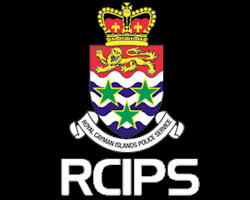Lawyer presses for cop probe ahead of trial
(CNS): A local defense attorney has accused the police commissioner of hiding behind court contempt laws to avoid investigating a complaint against one of his officers due to give evidence in a forthcoming drug trial. Peter Polack has filed a complaint about the behaviour of the officer in the case and wants to see that addressed before, not after, the trial. The lawyer has said that David Baines is wrong to claim the issue is sub judice and the complaint must be addressed before the cop gives what could be false evidence against his client.
“It is completely counter-intuitive and lacking in common sense that this matter should not be adjudicated … before the officer faces the witness stand,” the lawyer said in correspondence with the commissioner after Baines claimed that Polack’s complaints would not be addressed before the trial.
The lawyer made his complaint almost one year ago but the police and the Anti-Corruption Commission continue to refuse to investigate the allegations.
As a result, Polack plans to apply for a stay of the legal proceedings against his client until his complaint about the officer’s behavior is addressed. Polack has also raised his concerns that Baines should be using independent legal counsel as the advice given by the Office of the Director of Public Prosecutions (ODPP) in this case is not only wrong but also presents a very obvious conflict of interest.
“Not only is this matter not sub judice, an escape hatch commonly and erroneously applied by the ODPP, but it is completely in the interests of justice that the most important prosecution witness have any issues of integrity resolved before the trial of an accused,” Polack stated.
The complaint revolves around the senior officer’s unlawful acquisition and execution of a warrant, which has now been thrown out, as well as the officer’s behavior regarding the case, among a number of other issues. Polack says he has a legitimate complaint that must be addressed and he has grave concerns that the commissioner’s reliance on the public prosecutor for advice in this case is misplaced and he accused the top cop of failing to apply the principles of natural justice.
In his response to Polack, Baines said, “Having discussed the matter with the DPP’s office, we will not be progressing your complaint further until the criminal case has been finalized by the court in order to avoid any potential conflict as the matter remains sub judice.”
The defence attorney has already complained to the Anti-Corruption Unit but officers there also decline to look at the matter until the case is heard.
Speaking to CNS, Polack pointed to the dangers of erroneously hiding behind the sub judice question, not just in his case but more broadly.
“It is too late to investigate allegations about possible corruption among police officers after they have given what could be false evidence at trial that could lead to a wrongful conviction,” he said.
Polack said in this case the commissioner had failed to discharge his duty independently and the reliance on the advice of the ODPP was a clear conflict of interest that was allowing an important complaint to remain outstanding before the trial. He said that the commissioner was not a lawyer and he needed to seek independent counsel for the RCIPS in order to avoid “being led down the garden path by those of contrary interests”.
The outspoken attorney, who is one of the few local lawyers willing to speak out about the myriad question marks surrounding local law enforcement and public prosecutions, said that there have been several cases recently which highlight the fact that the police, legal department and the ODPP are not retaining “their constitutional corners” and the independence of these separate offices is not being maintained.





































In these colonial times one must never have and opposing or different view its and invitation for their contempt and apparatus to reign down fire upon you! Be careful Mr Polack!!!
Anonymous reporting just the facts:
Sir, if the officer gives false evidence under oath that is perjury and as a learned counsel you should be able to evidenced this during the trial or during a Voir dire, which you know is a trial within a trial to determine the admissibility of certain evidence. If you have factual information to show that the officer is not trustful then the judicial proceedings is the competent authority to determine this not an investigation outside of the judicial proceedings.
In any event, wouldn’t perjured evidence assist your client?
Likewise, I don’t think that the Anti-Corruption Unit was established for this.
You anon 4:32pm understand very little about how colonialism works? That whole arrangement and premiss has nothing to do with fighting corruption but it is a very useful tool to deal with those locals who even dare to question their rule. If you have any doubts about the truth in this statement all you have to do is merely look at who is in their employ to take your complaints and those who job it is to investigate such complaints. What is very clear is their very obvious and very nasty little agenda. That is very evident from the fact of whom they seek to investigate. It is never ever one their own!
I have always maintained the view that the police commissioner cannot and should not have anything to do with the anti corruption commission.
The point that Mr. Polack is trying to make is this, firstly on the one hand yes perjury is an offence and is qiite a serious issue because it is akin to the administration of justice and the fairness of the proceedings as a whole, secondly however to have the trial proceed and an individual perjures themselves and this perjured evidence no matter how slight it maybe could very well be a decisive factor in a conviction , in the case of a jury trial it is even more difficult because jury deliberate in secret and cannot be questioned on what matters they accepted or rejected be it in whole or in part and the same with which witnesses testimony they accepted or rejected whether wholly or in part.
Quite apart from that you have a court of appeal and yes the fact that a person has been suspected to have perjured themselves during the proceedings that little bit of perjured evidence maybe found to be wrong however there could be the case in which the other evidence against the defendant is so strong that notwithstanding that perjury may have been committed would have no bearing on a conviction being unsafe. And the other point that I want to make is that perjury isn’t as simple as yes Tom Strokes told what is perceived to be a lie under oath quite apart from that , is proving that Tom Strokes actually infact lied or is it a case of being made inadvertently or mistaken. As a matter of fact in order to prove perjury it has to be proven that the false statement was made deliberately and has to be material , so significant, rather than of negligible relevance. So hopefully this little bit of information may be of assistance to those who may not understand how the law works simply because most of us on here are law abiding citizens and further to this may not even work in the area of law.
Yes we may well believe a person may have lied under oath but we can’t say for sure it was deliberate unless of course u can establish some corroboration to prove the falsity of the statement. So to what I perceive as the point that Mr. Polack is making is that a person maybe suspected of possibly committing a criminal offence in this case perjury, so infact what he is doing is protecting his clients rights to a fair trial , (putting aside whether he is guilty or not guilty), as is expected in adversarial proceeding the rights to a fair trial are to be for all not just the crown because in majority if not all criminal offences they bare the burden of proofing the crime therefore they must not be allowed to act against the rules of natural justice, because if such be the position then the burden of proof would fall squarely at the feet of the defendant which is in law wrong if unless the situation arises where the defendant puts forward a defence of duress it would be the defendant who has to prove duress and the crowns duty to negative that it was duress, so what Mr. Polack is trying to do isnt to establish whether or not the officer is going to perjure himself but rather if he has already infact taken some steps in the investigative stage that as he states goes to his integrity that the only common sense inference that can be drawn is that he may well commit perjury.
Which as stated above isn’t exactly the easiest offence to prove. And again putting aside the complaint that has been made none of these issues are in the mix so, if, ex hypothesis the client is found guilty and the issues that are in the mix are discovered after the conviction the difficulties that an individual would face are tremendos, because the integrity issues may well arise and may well be suspect of the main witness having possible committed perjury the hurdle that has to be overcome is , is it material? is it so significant? because it may well on the face of it appear to be so but it also may well be inadvertent or by mistake and can very well be of negligible relevance that the conviction would nonetheless be deemed safe because overwhelming independent evidence be it direct evidence or circumstantial evidence.
So the issues of integrity should very well be determined before the trial because the issues that are dealt with may well determine if the crown has other evidence that isn’t comprimised and tainted because of the integrity of the officer (if that is answered in the negative) that would mean that it would only be in the good sense of the crown to offer no evidence rather than to bring the administration of justice into disrepute, if you don’t trust the judicial system then how can they administer justice if they countenance excutive actions of the state in pre investigative stages of offences that there conduct is wrong. There is a saying “it’s better a guilty man go free, than an innocent person being convicted wrongly”.
In the appeal process the judges aren’t concerned with whether a person is guilty or not guilty there duty is to review the grounds of appeal not the whole case as it isn’t a retrial or hearing all the evidence all over again there sole function is to determine the safety of a conviction and in order to achieve this they make a decision based on relevant transcripts relating to the points which are the subjects of appeal and determine based on that, and arguments on points of law and other precedents to arrive at a conclusion as to whether the conviction is safe or unsafe. So I think this is the difficulty that Mr. Polack is trying to avoid which is within practice propriety to do the best he can for his client Within the scope of the law And to avoid a miscarriage of justice.